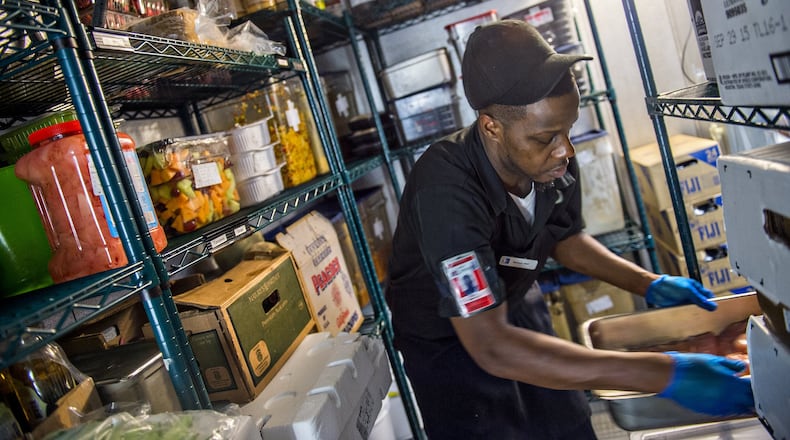A startup called Goodr is recovering thousands of pounds surplus food at Hartsfield-Jackson International Airport to be donated to people in need.
Goodr, founded last year by Jasmine Crowe, is an Atlanta-based food management company with a team of drivers that sells its services to companies and restaurants for pickup of surplus food.
The Goodr app allows businesses to request pickup of extra food to be delivered and donated to nonprofits. The app also provides data for companies to track and account for their donations and see their tax savings.
There are more than 100 restaurants, bars and eateries at the world's busiest airport.
"It is a very painful feeling knowing that every 3.5 hours, bagels and bread are being thrown out," said Hartsfield-Jackson sustainability manager Liza Milagro.
Crowe last year competed in an airport-run hackathon challenge called ATL Thinks! and won in her category, leading to a beta test that started in April and the rollout of the airport's program in July.
“We have a chain of custody for all the food that leaves the airport,” Milagro said at an airport environmental conference called Airports Going Green held in Atlanta by the American Association of Airport Executives this week. “We have a code associated with every single item. We are able to track that food from the airport to the community,” she said.
Milagro said the airport has recovered more than 69,000 lbs of edible food, reducing carbon emissions by diverting food waste from landfills and generating meals for those in need.
About the Author
The Latest
Featured



